Phones have supported eSIM for a relatively short time. The first phones that came to market with eSIM support were the iPhone XS, XS Max, and XR in 2018. Since then, eSIM support was reserved for flagships and the most expensive models from various brands. Over time, however, the eSIM feature has gradually made its way into cheaper and cheaper models. Today, it's possible to buy a good phone with eSIM support for less than $142. In this list, we'll look at the top 7 cheapest good phones with eSIM support.
Article Content
Why Choose a Budget Phone with eSIM Support?
Looking for the cheapest phones with eSIM for 2025? You're right – eSIM technology is no longer exclusive to expensive flagship devices. You'll save hundreds of dollars and get modern features that make traveling and everyday phone use much easier.
Budget phones with virtual SIM card support are an ideal choice for anyone who wants to:
- Use eSIM for traveling without high roaming fees
- Quickly switch between carriers based on the best offers
- Utilize Airalo, Holafly or Saily and others for affordable data abroad
What to Focus on When Choosing a Budget eSIM Phone?
With the gradual evolution of phones, it's no longer true that the cheapest phones are completely unusable. Nowadays, even a decent budget phone will allow you to do everything you need, especially if you don't have high demands. What remains interesting about budget phones compared to expensive flagship models is that each phone approaches achieving a low price differently:
Want a budget phone from a reputable brand? Then the phone's construction will likely be plastic only. Want a very powerful phone with a good processor and large battery? Then, much more often, the phone won't take breathtaking photos. It simply depends on what's important to you and what you can overlook.
We've prepared a ranking of the top 7 most affordable phones with eSIM support that offer the best value for money in 2025:
Cheapest Phones with eSIM Support
Motorola Moto G35 5G
From $128
Motorola Moto G35 5G - absolutely the cheapest phone with eSIM support. With Android 14 operating system, featuring a 6.7" IPS display with 120 Hz refresh rate and 1000 nits brightness. The phone is equipped with 4 GB RAM (expandable by 4 GB virtual RAM), 256 GB storage and supports both eSIM and physical SIM card. It includes a 50MP main camera, a 5000 mAh battery with 18 W fast charging and supports 5G connectivity.
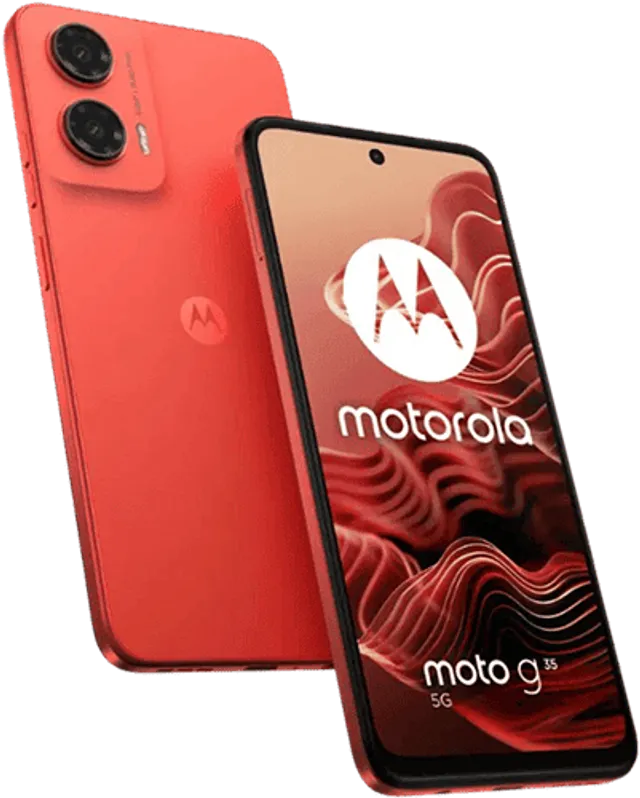
Key features of budget phones with eSIM
- eSIM support - Dual SIM functionality without physical card
- Battery life - 5000 mAh capacity with 18 W fast charging
- Display quality - 6.7" screen, 120 Hz refresh rate, 1000 nits brightness
- Performance - 4 GB RAM (+ 4 GB virtual), 256 GB storage
- Network support - 5G connectivity for future compatibility
- Camera - 50MP main camera for quality everyday photography
- Durability - Gorilla Glass 3 protection against display damage
- Modern features - NFC for contactless payments
Motorola Moto G55 5G
From $217
Motorola Moto G55 5G is a smartphone from 2024 with Android 14 operating system, featuring a 6.5" IPS display with 120 Hz refresh rate and HDR 10+ support. The phone is equipped with 8 GB RAM (expandable by 4 GB virtual RAM), 256 GB storage and supports both eSIM and physical SIM card. It includes a 50MP main camera with optical image stabilization, 8MP ultra-wide camera, a 5000 mAh battery with 30 W fast charging and supports 5G connectivity.
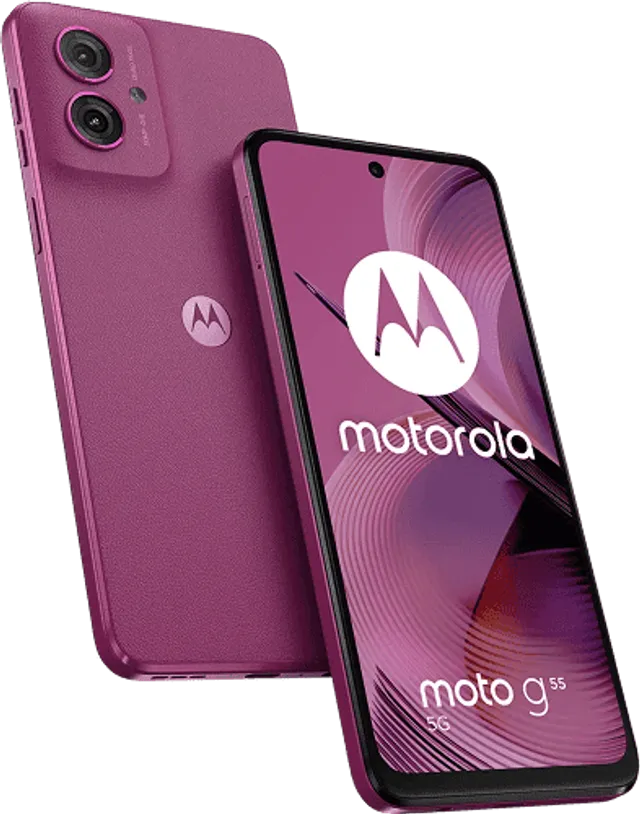
Key features of budget phones with eSIM
- eSIM support - Single SIM + eSIM configuration
- Battery life - 5000 mAh capacity with 30 W fast charging
- Display quality - 6.5" IPS screen, 120 Hz refresh rate, HDR 10+
- Performance - 8 GB RAM (+ 4 GB virtual), 256 GB storage, MediaTek Dimensity 7025
- Network support - 5G connectivity for future compatibility
- Camera - 50MP main camera with optical stabilization (OIS), 8MP ultra-wide camera
- Durability - Gorilla Glass 5 protection, IP54 water resistance
- Modern features - NFC for contactless payments, Dolby Atmos, 3.5mm Jack
Motorola Moto G85 5G
From $241
Motorola Moto G85 5G - a phone from 2024 with Android 14 operating system, featuring a 6.67" P-OLED display with 120 Hz refresh rate and high brightness of 1600 nits. The phone is equipped with 8 GB RAM, 256 GB storage and supports a combination of physical Nano SIM and eSIM. It includes a 50MP main camera with optical image stabilization, 8MP ultra-wide lens and 32MP front camera. The 5000 mAh battery supports 33 W fast charging and the phone is protected by durable Gorilla Glass 5 and IP52 water resistance certification.
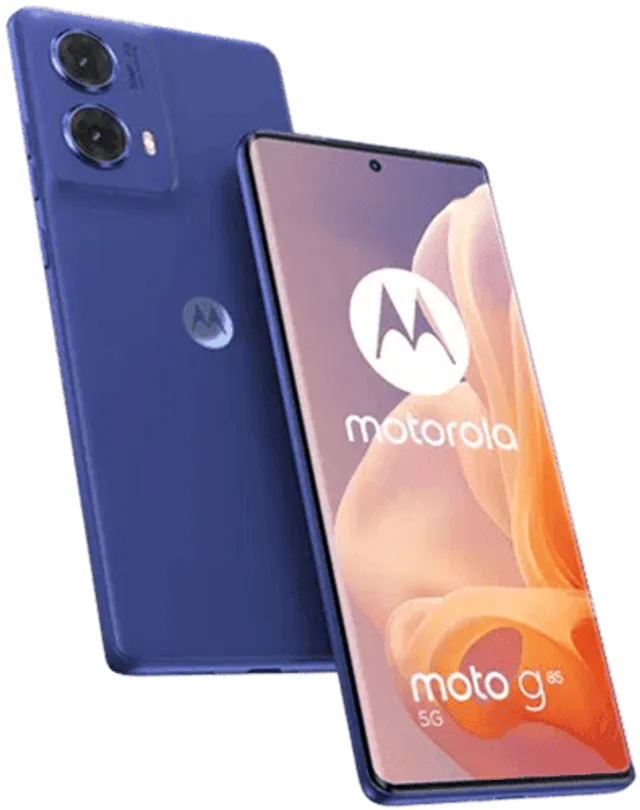
Key features of phones with eSIM
- eSIM support - Nano SIM + eSIM combination for flexible connectivity
- Battery life - 5000 mAh capacity with 33 W fast charging
- Quality display - 6.67" P-OLED screen, 120 Hz refresh rate, 1600 nits brightness
- Performance - 8 GB RAM, 256 GB storage, Snapdragon 6s Gen 3 processor
- Network support - 5G connectivity, VoLTE and VoWiFi for quality calls
- Camera - 50MP main camera with optical stabilization, 8MP ultra-wide lens, 32MP selfie camera
- Durability - Gorilla Glass 5 protection and IP52 water resistance
- Modern features - NFC for contactless payments, in-display fingerprint reader, Dolby Atmos
Xiaomi Redmi Note 14 Pro 5G
From $289
Xiaomi Redmi Note 14 Pro 5G is a premium smartphone with Android 14 (HyperOS) operating system, featuring a 6.67" P-OLED display with high resolution of 2712 × 1220, 120 Hz refresh rate and extreme brightness of 3000 nits. The phone is equipped with 8 GB RAM (expandable by 8 GB virtual RAM), 256 GB storage and supports Dual SIM + eSIM. It excels with a 200MP main camera with optical stabilization, has a 5110 mAh battery with 45 W fast charging and supports 5G connectivity. It also offers IP68 water resistance and Gorilla Glass Victus 2 display protection.
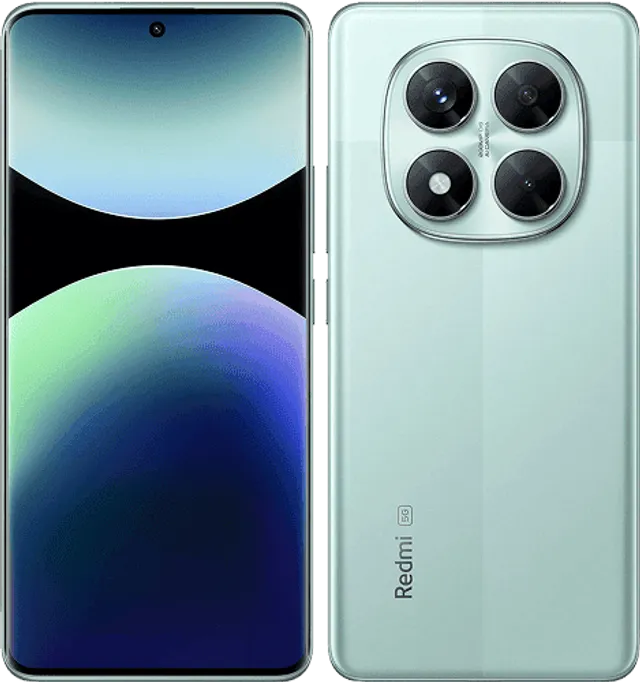
Key features of phones with eSIM
- eSIM support - Dual SIM + eSIM for maximum flexibility
- Battery life - 5110 mAh capacity with 45 W fast charging
- Display quality - 6.67" P-OLED screen, 120 Hz, 3000 nits brightness, 2712 × 1220 resolution
- Performance - 8 GB RAM (+ 8 GB virtual), 256 GB storage, MediaTek Dimensity 7300 Ultra
- Network support - 5G, 4G, VoLTE and VoWiFi for all types of connections
- Camera - 200MP main camera with optical stabilization, AI features and f/1.5 aperture
- Durability - IP68 water resistance and Gorilla Glass Victus 2 protection
- Modern features - NFC, infrared port, in-display fingerprint reader and face unlock
Sony Xperia 10 VI
From $421
Sony Xperia 10 VI is a smartphone from 2024 with Android 14 operating system, featuring a 6.1" OLED display with 2520 × 1080 resolution and 453 PPI density. The phone is equipped with 8 GB RAM, 128 GB storage (expandable via NM card) and supports a combination of physical Nano SIM and eSIM. It includes a 48MP main camera with 3.5× optical zoom, records video in 4K resolution and has a 5000 mAh battery. It also offers IP65 resistance and Gorilla Glass Victus display protection.
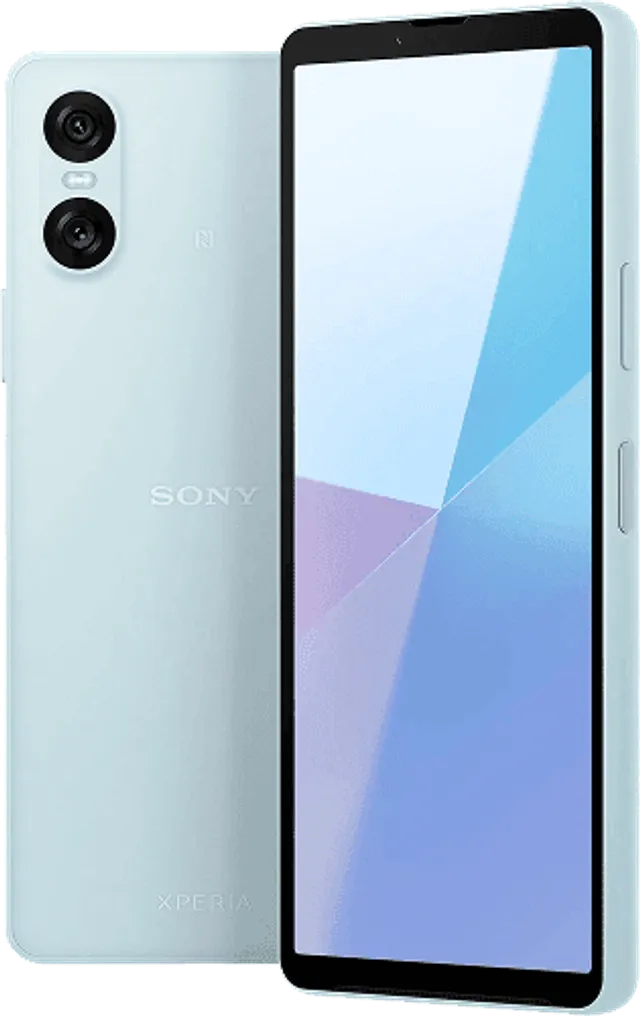
Key features of phones with eSIM
- eSIM support - Combination of physical Nano SIM and eSIM
- Battery life - 5000 mAh capacity for all-day usage
- Display quality - 6.1" OLED panel with high resolution of 2520 × 1080 and 453 PPI density
- Performance - 8 GB RAM, 128 GB storage, Qualcomm Snapdragon 6 Gen 1 processor
- Network support - 5G connectivity for high-speed internet
- Camera - 48MP main camera with 3.5× optical zoom and 4K video capability
- Durability - IP65 protection rating and Gorilla Glass Victus protection
- Modern features - NFC for contactless payments, 3.5mm headphone jack
Google Pixel 8a
From $459
Google Pixel 8a is an excellent last year's model of the cheapest phone from Google with Android 14 operating system (pure Android), featuring a 6.1" OLED display with 120 Hz refresh rate and exceptional brightness of 2000 nits. The phone is equipped with 8 GB RAM, 128 GB storage and supports a combination of physical Nano SIM and eSIM. It includes a 64MP main camera with optical image stabilization, a 4492 mAh battery with 18W fast charging and 7.5W wireless charging support. Performance is ensured by a 9-core Google Tensor G3 processor with 3 GHz frequency and the phone supports 5G connectivity.
Key features of phones with eSIM
- eSIM support - Nano SIM + eSIM combination for flexible connectivity
- Premium display - 6.1" OLED screen, 120 Hz refresh rate, 2000 nits brightness
- Performance - 8 GB RAM, 128 GB storage, Google Tensor G3 processor (9 cores, 3 GHz)
- Advanced camera - 64MP main camera with optical stabilization, 13MP front camera
- Battery life - 4492 mAh capacity with 18 W fast charging and wireless charging
- Network support - 5G connectivity for maximum data transfer speed
- Durability - Waterproof design (IP67), Gorilla Glass Victus 2 protection
- Modern features - NFC for contactless payments, face unlock, Bluetooth 5.3
iPhone 16
From $709
iPhone 16 is the cheapest new iPhone with iOS 18 operating system, featuring a 6.1" OLED display with 2532 × 1170 resolution and 1200 nits brightness. The phone is equipped with 8 GB RAM, 128 GB storage and supports both Nano SIM and eSIM. It includes a 48MP main camera with optical image stabilization, 12MP front camera, a 3279 mAh battery with fast charging support (20W) and wireless charging (7.5W), and supports 5G connectivity. The phone is powered by Apple A18 Bionic processor and integrated Apple Intelligence AI.
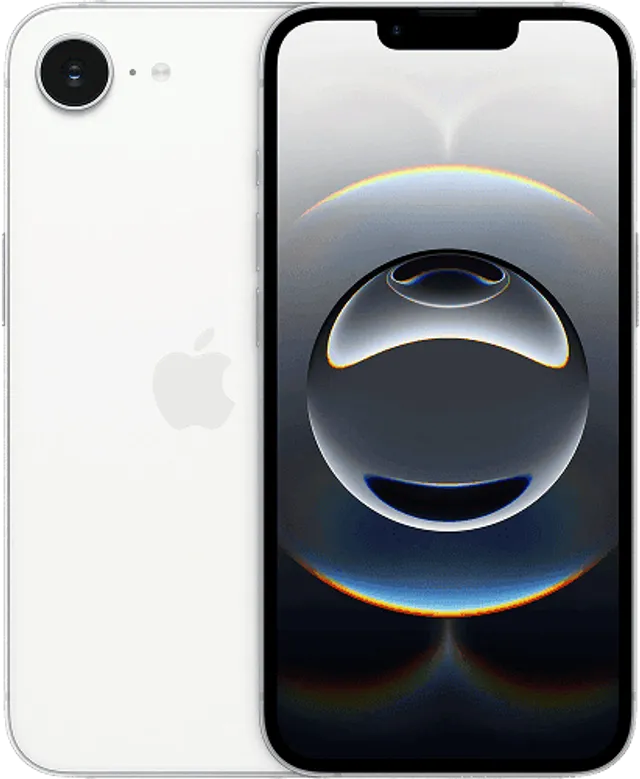
Key features of iPhone 16 with eSIM
- eSIM support - Single SIM + eSIM configuration for flexible connectivity
- Powerful processor - Apple A18 Bionic with 6 cores for smooth operation of all applications
- Quality display - 6.1" OLED screen, 2532 × 1170 resolution, 1200 nits brightness
- Performance - 8 GB RAM, 128 GB storage without expansion option
- Network support - 5G connectivity for high-speed internet
- Camera - 48MP main camera with optical stabilization and 4K video recording
- Durability - IP68 rating for increased water and dust resistance
- Modern features - NFC, wireless charging, integrated Apple Intelligence AI
Which Budget eSIM Phone is Best for You?
From our overview of the cheapest phones with eSIM, it's clear that you no longer need to spend thousands on premium models. The Motorola Moto G35 5G for under $142 proves that eSIM technology is truly accessible to everyone.
For average users, we recommend:
- Motorola Moto G35 5G – absolutely the cheapest phone with eSIM on the market
- Xiaomi Redmi Note 14 Pro 5G – best value for money with a 200MP camera
- Google Pixel 8a – for lovers of pure Android and quality photos
How to Start Using eSIM in a Budget Phone?
Once you've chosen your budget phone with eSIM support, follow these steps:
- Set up your data plan – determine how much data you need
- Choose a provider – eSIM Comparison
- Activate your eSIM – follow the guide for iPhone or Samsung
What is an eSIM?
An eSIM (embedded SIM) is a digital SIM card built directly into your device. Unlike a traditional plastic SIM card, you don't need to physically insert or replace it. The virtual SIM card contains a chip integrated directly into the phone, which allows mobile carrier profiles to be downloaded remotely via the internet.
The main advantage of a data eSIM is the ability to store several different profiles simultaneously and switch between them without physically changing cards. When you purchase an eSIM, the provider sends you a QR code or activation details. After scanning or entering them, the respective profile downloads to your device, and you can immediately use the mobile services of that carrier. This technology is particularly useful for eSIM for travel, when you can have your home SIM card active for incoming calls while simultaneously using local data connectivity.
Summary: Cheapest Phones with eSIM in 2025
eSIM technology has become accessible to everyone. Whether you're looking for the cheapest phone with eSIM under $142 or a quality model under $474, you have plenty to choose from. Investing in a phone with virtual SIM card support pays off – you'll save on roaming, gain the flexibility of two numbers, and prepare yourself for the future of mobile technology.
Remember that the phone itself is just the first step. For maximum utilization of eSIM technology, check out guides on converting a regular SIM to eSIM and All about eSIM | What it is, usage, devices, installation, operators | 2025.
Frequently Asked Questions
Do budget phones with eSIM work as well as more expensive models?
Can I use an eSIM from a US carrier and a foreign provider simultaneously?
Can I use multiple eSIMs at once?
How do I determine how much data I'll need on my trip?

What is eSIM?
eSIM allows you to use a digital SIM card instead of a traditional plastic one. This enables you to purchase a SIM card online for the country you're traveling to.
The most well-known eSIM providers on the market are Airalo, Holafly, eSIM4Travel, Yesim, Saily and others.
Frequently asked questions about eSIM:
- Does my phone have eSIM?
- How to add eSIM to iPhone or Samsung?
- How to install eSIM on an older phone?
- What are the most affordable and best phones with eSIM support?

How to compare eSIM?
Here you can compare eSIM data packages for more than 170 countries, such as UK, USA, Egypt and others. And that for any duration and amount of data.
Along with additional information, such as provider ratings and whether the website is available in Czech.
Compare all eSIMs
Why can you trust Vefru?
Founders František and Jan experienced problems with mobile data every time they traveled outside the EU. As technology enthusiasts, the idea of traveling abroad without a data connection or risking truly insane roaming fees was unacceptable to them. Regardless of how adventurous the story of walking across Toronto on a winter night without an online map might be, it's not something they would want to repeat.
After the emergence of eSIM and later eSIM travel data package providers, they learned a lot about the technology and industry and decided to share their findings and the comparison tool they created for themselves with others. It now contains more than 10,000 updated eSIM mobile data packages from the most popular providers for more than 170 countries around the world.
Every time you read a guide on Vefru, it is created in the same way the author would research the topic themselves. From contacting locals about the best network operators, to recommending the most advantageous plans for what you really need, to technical guides on how to create a QR code for eSIM or how to troubleshoot eSIM issues. Most articles are created based on topics that the authors themselves have dealt with and for which they found the best solutions.
Technology experts
instead of copywriters
We test everything we
write about
We compare 10 thousand
eSIM data packages






